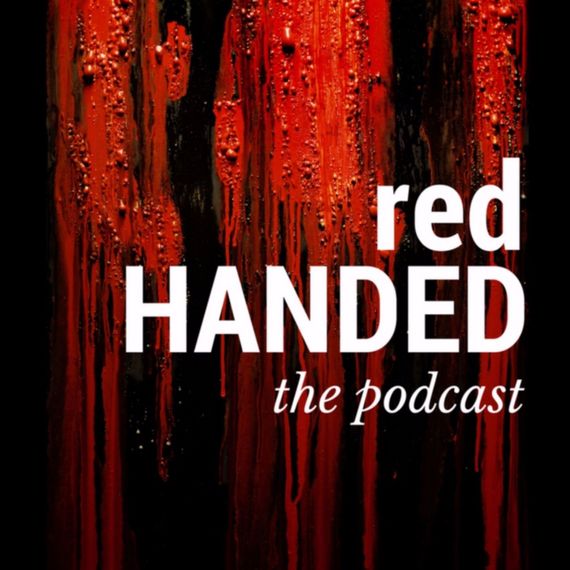
The┬átrue-crime podcast universe┬áis ever expanding. WeÔÇÖre here to make it a bit smaller and a bit more manageable. There are a lot of great shows, and each has a lot of great episodes, so we want to highlight the noteworthy and the exceptional. Each week, our crack team of podcast enthusiasts and specialists will pick their favorites.
The Queen: ÔÇ£Bobbie and DianaÔÇØ
If you were kicking around in the ÔÇÖ80s, chances are good that you remember Ronald Reagan describing a glamorous grifter he dubbed the Welfare Queen who was emblematic of all of the things wrong with the welfare system. This Chicago woman had cars and furs and all sorts of fancy things sheÔÇÖd bought by cashing in welfare checks ÔÇö sheÔÇÖd stolen six figures, if not seven, through welfare fraud. And if you werenÔÇÖt around then, well, ReaganÔÇÖs folksy attempt to scare constituents has woven itself into the fabric of pop culture. In GLOW, Kia StevensÔÇÖs characterÔÇÖs wrestling character is dubbed Welfare Queen and makes the racist subtext of ReaganÔÇÖs fearmongering explicit.
But who was the woman behind ReaganÔÇÖs anecdote? SlateÔÇÖs podcast The Queen, which is a companion piece to Josh LevinÔÇÖs book of the same name, delves into the sad and strange life of Linda Taylor. As it turns out, the welfare fraud was exaggerated by the journalist who dug up her story, and Reagan ran with it, but she committed a host of other crimes, including a possible murder and kidnapping. To be clear, The Queen´╗┐ doesnÔÇÖt give Taylor a pass for her crimes, but it does give her story context and examines how the ÔÇ£Welfare QueenÔÇØ concept became a touchstone for the vilification of people on welfare and black women in general. This is the last episode of the series, and it features interviews with two women who knew Taylor when they were children, with vastly different experiences with Taylor. A bonus episode just dropped today, but only for Slate subscribers. ÔÇöJenni Miller
This Land: ÔÇ£The CaseÔÇØ
Crooked Media enters the true-crime arena with This Land, focusing on the consequences of a seemingly straightforward murder case 20 years ago in Oklahoma. What happened does not seem to be under dispute. A man named Patrick Murphy was found guilty of murdering another man named George Jacobs. Both men were members of the Muscogee Creek Nation. Murphy was sentenced to death. The real crux of the podcast, though, is that MurphyÔÇÖs lawyers argue the crime took place on reservation land, putting it outside of the stateÔÇÖs jurisdiction, a claim that has now made it to the Supreme Court. A favorable ruling would save Murphy from execution. The outcome could also result in as much as half of OklahomaÔÇÖs land being designated as reservation territory. If this sounds dry, rest assured, itÔÇÖs not. In the ÔÇ£The Case,ÔÇØ host Rebecca Nagle ÔÇö herself a member of the Cherokee ÔÇö tells the complicated history of land apportionment in Oklahoma and the legal theory that distinguishes between owning a piece of ground and owning the earth beneath it. The show also promises to explore a seemingly unconnected murder that occurred 150 years ago and the ÔÇ£larger right wing attack on tribal sovereignty.ÔÇØ ÔÇöToby Ball
RedHanded: ÔÇ£Strangers at the Door: The Murder of Kanika PowellÔÇØ
The only reason we have any information about the lead-up to 28-year-old Kanika PowellÔÇÖs 2008 murder is because of communication she had with her mother and her friends. As RedHandedÔÇÖs co-host Hannah points out in this episode, researching PowellÔÇÖs case online resulted in a lot of ÔÇ£404ÔÇØ error messages.┬áAfter four instances of strange men (who knew her name) showing up on her doorstep, two of whom insisting that they had a package for her, Powell was shot in the hallway of her apartment in the middle of the day. Did Powell, a security contractor with top-secret clearance, stumble upon something she shouldnÔÇÖt have? Was it a hit gone wrong (ÔÇ£Hit men donÔÇÖt have Yelp review pages.ÔÇØ ÔÇö Hannah)? Was her murder connected to an active serial killer in the area? Even now, PowellÔÇÖs death remains unsolved, as does that of Sean Green, another person of color and a government employee, shot to death 30 miles away while parked in traffic two and a half months after PowellÔÇÖs death. Are they connected? In the span of 43 minutes, Hannah and Suruthi will inspire you to plunder the crevasse that is Reddit and remind you that even locking your doors might not be enough to save you. ÔÇöChanel Dubofsky
Gangster Capitalism: ÔÇ£RickyÔÇØ
Covering a case while the legal proceedings are ongoing is a tricky proposition. But for a new podcast detailing the college admissions scandal, documentarian Andrew Jenks (late of MTVÔÇÖs World of Jenks) seems to have found a sweet spot, utilizing the endless reams of incriminating transcripts, supplemented with his own original reporting. The first few episodes feature interviews that shed light on the grander societal toll this crime took. (ÔÇ£The Bumper Sticker MentalityÔÇØ includes a truly heartbreaking chat with a rowing coach who works with underprivileged youth ÔÇö ones whose spots at elite colleges could have theoretically been taken by the faux athletes who bribed their way in.) With ÔÇ£Ricky,ÔÇØ Jenks is finally able to get people familiar with the scandalÔÇÖs mastermind ÔÇö William ÔÇ£RickÔÇØ Singer ÔÇö to speak about his upbringing and bearing. What emerges is a portrait of a young man observing his small townÔÇÖs elite and doing what he had to to get a piece for himself. ItÔÇÖs the American Dream gone rotten. ÔÇöAmy Wilkinson
Stuff You Should Know: ÔÇ£The Tylenol Murders, Parts I and IIÔÇØ
Oh, the innocent times ÔÇö when you could take a Tylenol without wondering if it would kill you. The 1982 Tylenol Murders, which killed seven people in one day in Chicago, remain unsolved. The question of who would do something like this is an obvious one because it was┬ábasically impossible for the poisoner to know exactly who would be taking the tampered drugs, so discerning a motive proved even more difficult. In ÔÇ£Part I,ÔÇØ Josh and Chuck give you the basics, including the victims, as well as what was done after it became clear that this was a case of domestic terrorism. ÔÇ£Part IIÔÇØ outlines the suspects ÔÇö the chemist who literally owned a manual on how to kill people, and the dude who had, among other things, been caught with dismembered body parts in his attic. The police and the FBI, as well as citizen detectives, are still trying to solve this case, and some folks donÔÇÖt actually think it was a case of random murder at all, but a major glitch that Johnson & Johnson was aware of. Yikes. ÔÇöChanel Dubofsky






